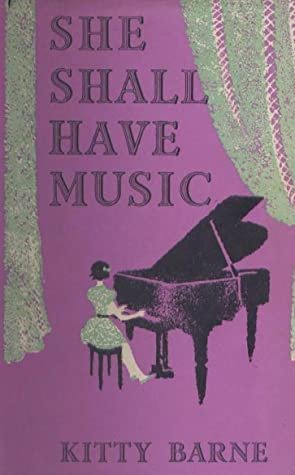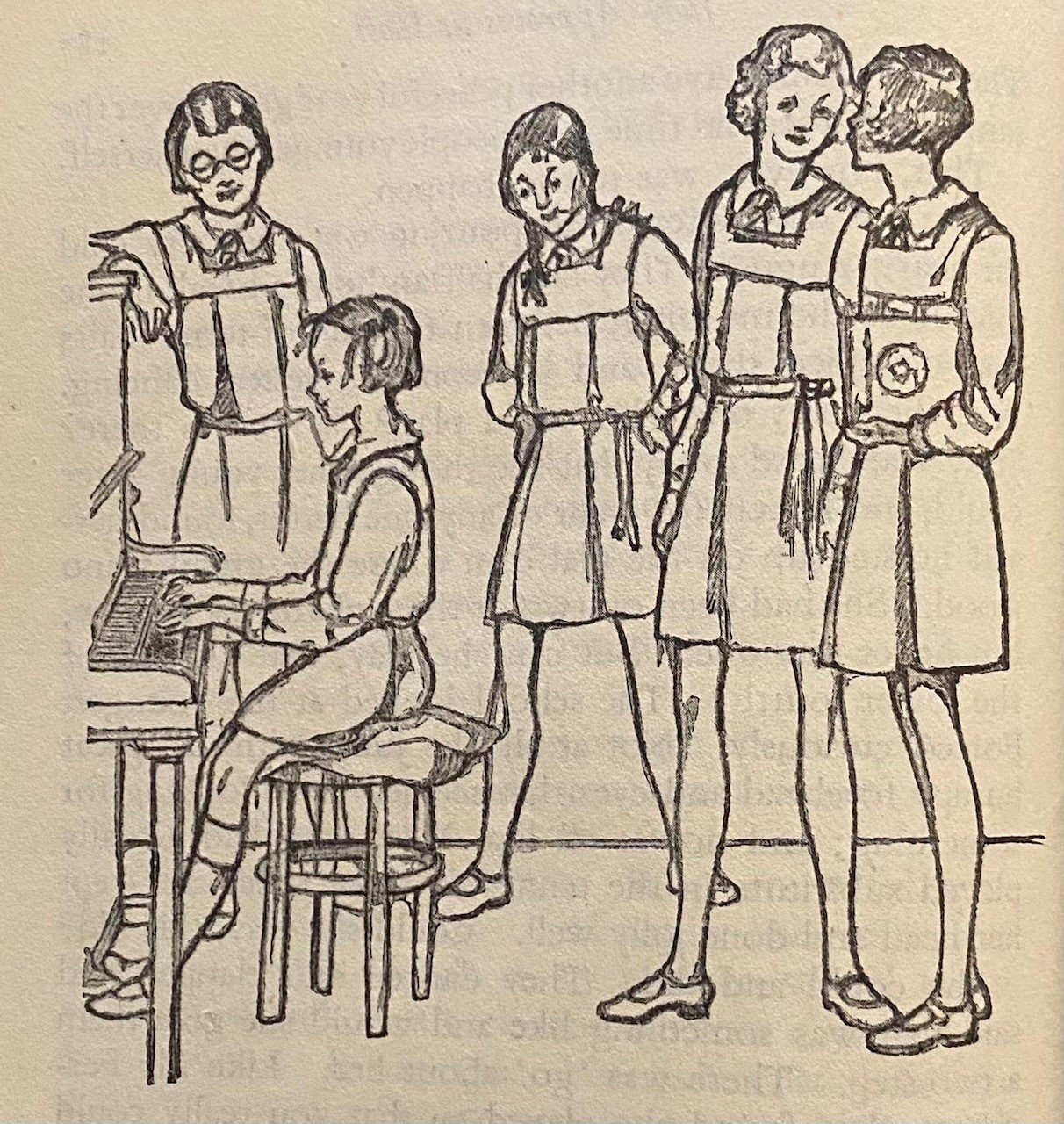Children’s Music Books from 40 years ago: A walk down Nostalgia Lane
I am in nostalgic mode this month, in the books I am reflecting on. This is possibly an outcome of the nightly ritual of reading books from my childhood to my 9yo son. Many of these were read to me by my mother. I would often beg for just a little more, just one more chapter, and often she would oblige. Currently my son and I are partway through Redcap Runs Away by Rhoda Power, first published in 1952, a mix of history and music that just suits his interests. Redcap, the sweet-voiced smith’s boy, runs away with the minstrels in search of his flame-haired uncle. It’s a gentle view of the feudal system with its accompanying hardships, and in the end love of family wins out over Redcap’s love of singing. On the way, we learn much about medieval life and the music in it. I remember well my delight at learning the tune of the Boarshead Carol a few years after making its acquaintance in this book, and even at university, echoes of the story resounded in the Medieval and Renaissance module.
I was a hungry reader. We lived in a small city in New Zealand with a large library; it covered two floors of an enormous building, with the children’s section taking up two whole rooms. The fiction books decorated the walls, while the nonfiction was on free-standing shelves in the middle. The amount of choice at times paralysed me, but I read widely. Novels and biographies were my first choice, though I realise just how many of my favourite books were about music. I used to go upstairs to borrow song collections from the adult section, taking them home to learn enthusiastically - my sister still laughs at the memory of my frequent renditions of favourites such as The Man-Eating Shark:
“The most chivalrous fish in the ocean,
To ladies forbearing and mild,
Though his record be dark
Is the man-eating shark -
Who will eat neither woman nor child.”
And then I would descend the stairs again to prowl the shelves of the children’s section. I was only permitted eight books each time, and choosing was an agony of pleasure and pain. Which ones were safest to leave in the hope that they would still be there the following week? Did I want to read comfortable familiars, or branch out into new territory?
I wonder what happened to all those old books when the library and its collections were updated? I used to love hunting through the “cancelled” book box, buying up titles that still grace my bookshelves. Several favourites at different times of my life are in the pile ready to be read to my son when their turn comes.
Music books often made up the majority of my selection. I enjoyed the Opal Wheeler fictionalized accounts of composer childhoods, with excerpts from their works dotting the pages. Brahms turned up in the cancelled book box, and I played the Intermezzo op.117/1 over and over. (Later I would play it for my Grade 8 exam, a choice fueled almost entirely by that earlier acquaintance.) The Lark in the Morn and The Lark on the Wing by Elfrida Vipont, the story of a Quaker girl who must choose the kind of singer she wants to be, introduced me to Schubert through An die Musik.
The one for the youngest reader that I recall was The Wood Street Group, by Mabel Esther Allan. I never really got into her more magical, older books, but this one I read more than once. It’s the story of a group of children who are bored enough in the miserable cold of a British midwinter to start their own band, making their own instruments where necessary and eventually staging a concert for their appreciative families. How I wished I could persuade my friends to do the same! I imagined gathering in our garage with pipe, drum and ukulele; sadly it was not to be, and I had to wait until I had the captive audience of a primary school music class before I could fulfil my ambition in some way.
Another book, rather more exotic to my Antipodean sensibilities, was Seraph In A Box by Robina Beckles Willson. This is the second of three books about Sarah and Alistair, the slightly complex back story having been set up in the first book of the trilogy, Pineapple Palace. It is the story of a glass harmonica, an instrument that I fear went over my uncomprehending head, but the intrigue around the sinister man on the motorcycle, and the letter in the hand of Leopold Mozart, kept me reading. Eventually that information, so lightly offered in the core of the storytelling, was filed away in my memory, and when I finally heard the Mozart Adagio that is the music of the story, Beckles Willson’s book was a warm pillar of understanding in my listening.
But there were two books that I read again and again, perhaps betraying my pianistic soul early on. The first was Prelude by Clare H. Abrahall, a romanticised account of the early years of Australian pianist Eileen Joyce, and the less-than-ideal circumstances from which she came. Eileen’s long, bare legs play a prominent role, a symbol of her freedom in the Australian countryside, and a foil to the sparkling fingerwork on the piano. But there was enough music, the beckoning lights of London kept me gripped, and it’s also worth noting that Abrahall knew Joyce personally, persuading the pianist to recount her story, and accompanying her on tours around the globe.
My favourite book, the one that was read while I dreamed of glory, was Kitty Barne’s She Shall Have Music. Barne was a favourite author anyway, and I read many of her books. But this one came from a place of deep identification on the part of Barne, who had studied music at the Royal College of Music, before having to give it up when surgery caused deafness in her left ear. When I look back on it with my adult eyes, I am quite horrified by some of the experiences that the central character undergoes. The public assassination of her musicality in her first competition makes me shudder, as does the rather savage portrayal of her first teacher’s attempt at an overdone Bohemian musicality. But as a child I devoured the experiences of Karen, the heroine, from her first hunting for the notes of Drink To Me Only on Aunt Anne’s stiff piano, through the ups and downs of terrible technique and scale regimes, to the triumph of the scholarship at the London Institute of Music. I wished I could entertain my friends the way Karen could, and I wished I could soak myself in music all day every day. All these book fed my love of music, almost as much as the music itself:
“‘Now play us something properly,’ shouted a girl who was a music-lover herself.
‘go on, but for goodness’ sake don’t given them any of your high-brow stuff,’ hissed Judy in her ear. Karen was coming off splendidly; she mustn’t be allowed to spoil it.
So Karen gave the ‘Rocket’ – nothing high-brow about that. A scream with the back of her hand scraping up the keyboard – that was the rocket going off. Seven singing notes for the stars. Thunder in the bass with a loud pedal down for the applause. It was a great success and she tried something more.
‘Listen. This is a dancing bear.’ She played the passage where he lumbers in, out of the Haydn symphony that Aunt Anne always called ‘The Bear’.
They laughed at that. ‘Jolly good,’ said the head girl, and Karen’s spirits began to bubble.”




